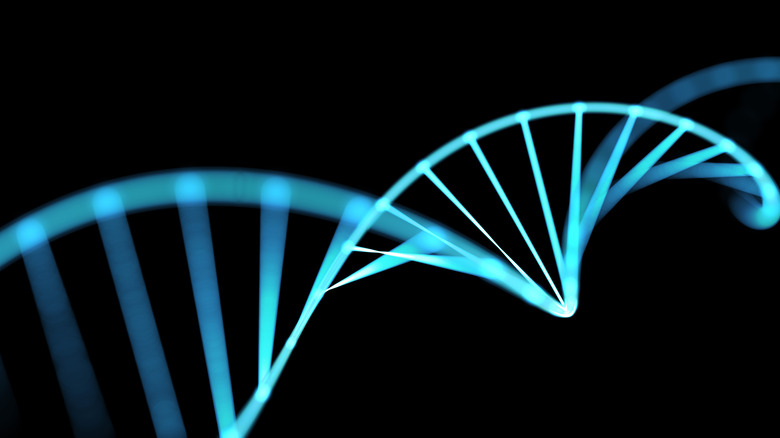How Arthritis May Be Linked To Genetics
Your genetics have an effect on everything from your eye color to ability to whether you're an optimist or a pessimist. If your parents are generally healthy and aging well, there's a greater chance that you will have fewer health problems as you get older, too. But there's one condition that might not be as clear cut when it comes to inheriting it from your parents. Arthritis can be unpleasant no matter why you got it, but knowing your chances of inheriting it may help you recognize the symptoms and seek out effective treatment.
Arthritis describes the condition of pain, swelling, and stiffness of the joints. The inflammatory condition affects millions of adults, usually starts between the ages of 30 and 50, and can become debilitating if left untreated (via WebMD). Because of overlapping symptoms with other conditions of the muscles and bones, a doctor needs to confirm the presence of arthritis. The two main types of arthritis are osteoarthritis and rheumatoid arthritis. Osteoarthritis is the most common type of arthritis and is characterized by the wearing away of the cartilage that protects and cushions your bones at the joints (via Mayo Clinic). Once that protective cushioning is gone, the bones will start to grind against one another and eventually wear down.
There are many factors that contribute to arthritis
Rheumatoid arthritis is caused by an autoimmune response by a person's body which causes the immune system to attack the joints (via Mayo Clinic). It's more commonly found in women than men, and tends to show up at an earlier age than osteoarthritis. There are several less common types of arthritis, including juvenile arthritis which occurs in children and is another autoimmune disease. Some of the factors that may cause arthritis include injuries, being overweight, smoking, and being an older female. Genetics play a part in someone's chances of developing the disease as well.
For people with human leukocyte antigen class II genotypes, there is a higher risk of developing rheumatoid arthritis. And approximately 40-60% of people who develop osteoarthritis have inherited mutations in genes that produce collagen (via Cleveland Clinic). For those with osteoarthritis of the hands and hips, the genetic link is even greater. Doctors are hopeful that eventually there will be genetic therapies that will reduce the risk of developing hereditary arthritis, but for now, research continues to learn more about arthritis and genetics.


